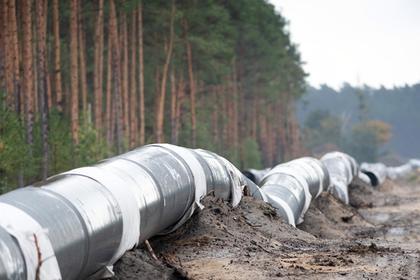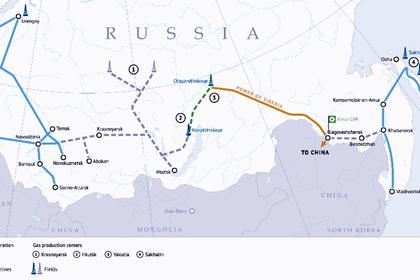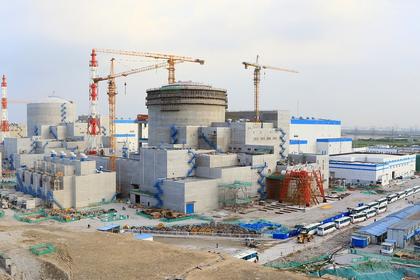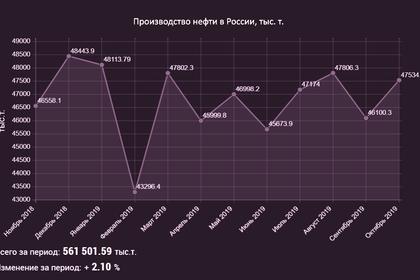
RUSSIA'S HUMAN CAPITAL: 46%
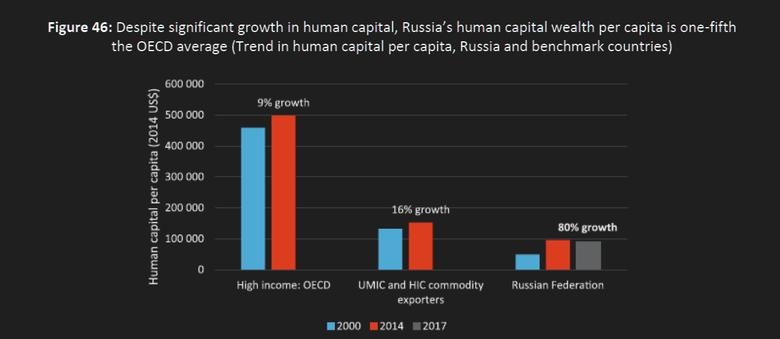
WBG - MOSCOW, December 4, 2019 – After a weak performance in the first half of 2019, economic growth in Russia picked up in the third quarter to 1.7 percent, helped by monetary easing, faster public spending and some one-off effects according to the World Bank’s latest Russia Economic Report (#42 in the series).
The outlook for Russia comes as global growth weakened substantially in 2019, reflecting a slowdown in industrial activity and global trade. Slowing external demand and the oil production cuts Russia agreed with Organization of Petroleum Exporting Countries (OPEC), weighed on the country’s export performance. Crude oil prices fell 14 percent in the January-September 2019, reflecting the downturn in the world economy. Growth is expected to pick up to 1.6 percent in 2020 and 1.8 percent in 2021. National projects are expected to contribute about 0.2 to 0.3 pp to GDP growth in 2021.
“Domestically, relatively tight monetary policy in the first half of 2019, weak real disposable-income dynamics due to higher inflation on the back of the VAT rate hike, and a slow start in the implementation of national projects dampened growth in 2019,” said Renaud Seligmann, World Bank Country Director in the Russian Federation. “A less restrictive monetary policy and increased spending on the national projects is expected to help foster growth.”
The report also suggests that the moderate poverty rate is expected to continue to decline in 2019 and through 2021, although the report urges the government to continue monitoring the needs of the most vulnerable Russians. Increasing the existing means-tested programs and expanding their reach would help to reach the goal of reducing poverty by half by 2024.
Unemployment – at 4.5 percent – has been declining and stays at historic lows. The Russian banking sector has been largely stable; however, credit expansion has been uneven, with retail lending leading this expansion. To mitigate potential risks to financial stability from the unsecured consumer lending segment, the Central Bank of Russia has been gradually introducing regulatory measures to curb household lending.
This year, the Report also examines the wealth of Russia as a nation, by comprehensively measuring produced capital, natural capital, human capital, and net foreign assets.
“The emerging findings indicate that the typical Russian citizen was 1.8 times wealthier in 2017 than in 2000 and at around 7 percent, Russia’s return on wealth is similar to upper middle and high-income countries but lower than that of certain Eastern European countries,” said Apurva Sanghi, World Bank’s Lead Economist for Russia. “We also see that the human capital, at 46 percent, comprises the largest share of wealth in Russia, with the natural capital share, standing at 20 percent. As a rough approximation, we estimate that Russia's forests provide annual absorption of about 640 million tons of CO2 equivalent.”
The report also finds that despite its significant growth, Russia’s human capital wealth per capita is one-fifth the Organization for Economic Cooperation and Development (OECD) average and at current rates, Russia would only catch up after almost 100 years. Russia's forests play an important carbon absorption role and underscore Russia’s importance as an ecological global donor. However, the country’s large share of carbon-based wealth faces increased risk due to future price uncertainty and large-scale attempts at global decarbonization. Mitigating the risks of such stranded assets will require Russia to diversify its wealth portfolio away from its fossil fuel sector and towards other productive capital, cautions the report.
-----
Earlier:
